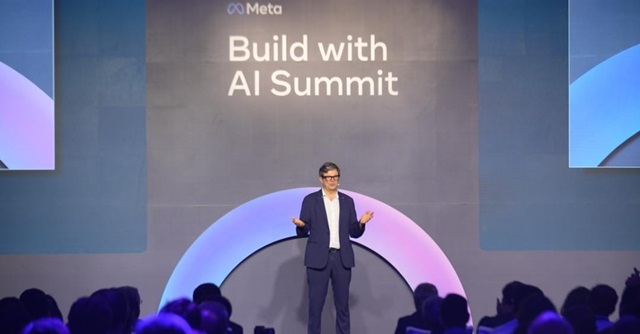
Big frontier AI systems will emerge from global, distributed efforts, not just big tech: Meta’s Yann LeCun


Meta AI chief and Turing awardee Yann LeCun, often referred to as one of the “Godfathers of AI,” spoke in Bengaluru on Wednesday about the evolution of AI, the role of India, and the significance of open-source technology.
LeCun highlighted that the current focus is on developing AI systems as a "comprehensive repository of human knowledge." While strides have been made, significant challenges remain. "We lack the diversity of data needed for training AI—particularly in terms of languages, cultural values, and areas of interest. It's impossible to centralize all the necessary data to create a true repository of human knowledge. Even with access to the data, AI systems would still require fine-tuning by people familiar with all the relevant languages and cultures," he said.
LeCun emphasized that no single organization, regardless of size, can achieve this alone. “It will require global collaboration, drawing expertise and data from across the world. In the future, I foresee big frontier AI systems not being developed solely by large companies or governments in advanced countries like the U.S. Instead, the leading AI systems will emerge from distributed efforts worldwide."

He also noted that data will remain local, with AI training distributed across centers in North America, Europe, Asia, and Africa. Specifically for India, LeCun predicted that the country will play a vital role, not just in tech and product development, but also in research. To realize this potential, he stressed the need to build robust infrastructure, train the next generation of experts, and engage with governments to ensure this decentralized approach is seen as beneficial rather than a threat to national sovereignty.
LeCun also highlighted the importance of open-source models in driving AI advancements. "Open-source models will be critical in enabling developers, educational institutions, government agencies, and enterprises to create cost-effective, scalable solutions tailored to India’s unique challenges. Meta’s vision for AI is deeply rooted in open-source principles, allowing us to tap into a global pool of creativity and innovation.”
This vision aligns with Meta CEO Mark Zuckerberg’s July blog post, "Open Source AI is the Way Forward," in which he announced the release of the open-source Llama 3.1 model. Democratizing access to AI models has helped Indian developers create custom solutions. One example is KissanAI, which uses the Llama model to support farmers through WhatsApp, available across India in 22 languages, including 9 Indian languages.

Meta is also working closely with government agencies to demonstrate how open-source AI can improve governance and public service delivery. Recently, they partnered with the Andhra Pradesh government to enhance services using Meta’s WhatsApp Business Solution and open-source AI like Llama, enabling efficient communication between citizens and the government. In Telangana, Llama models are being used to optimize processes across government departments.
Last year, Meta collaborated with IndiaAI and MeitY to advance AI research and worked with NLSIU and IIT Bombay on a project with the Department of Consumer Affairs to leverage large language models (LLMs) for legal reforms, including citizen-focused chatbots and decision-assist tools for consumer law.
